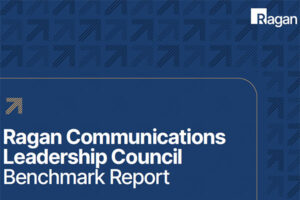Responses to racism can have big impact on employee retention, survey says
New Edelman research codifies how employee concerns around systemic racism and racial injustice rise with each tragedy — and how the response their employers take affects their decision to stay at the company.
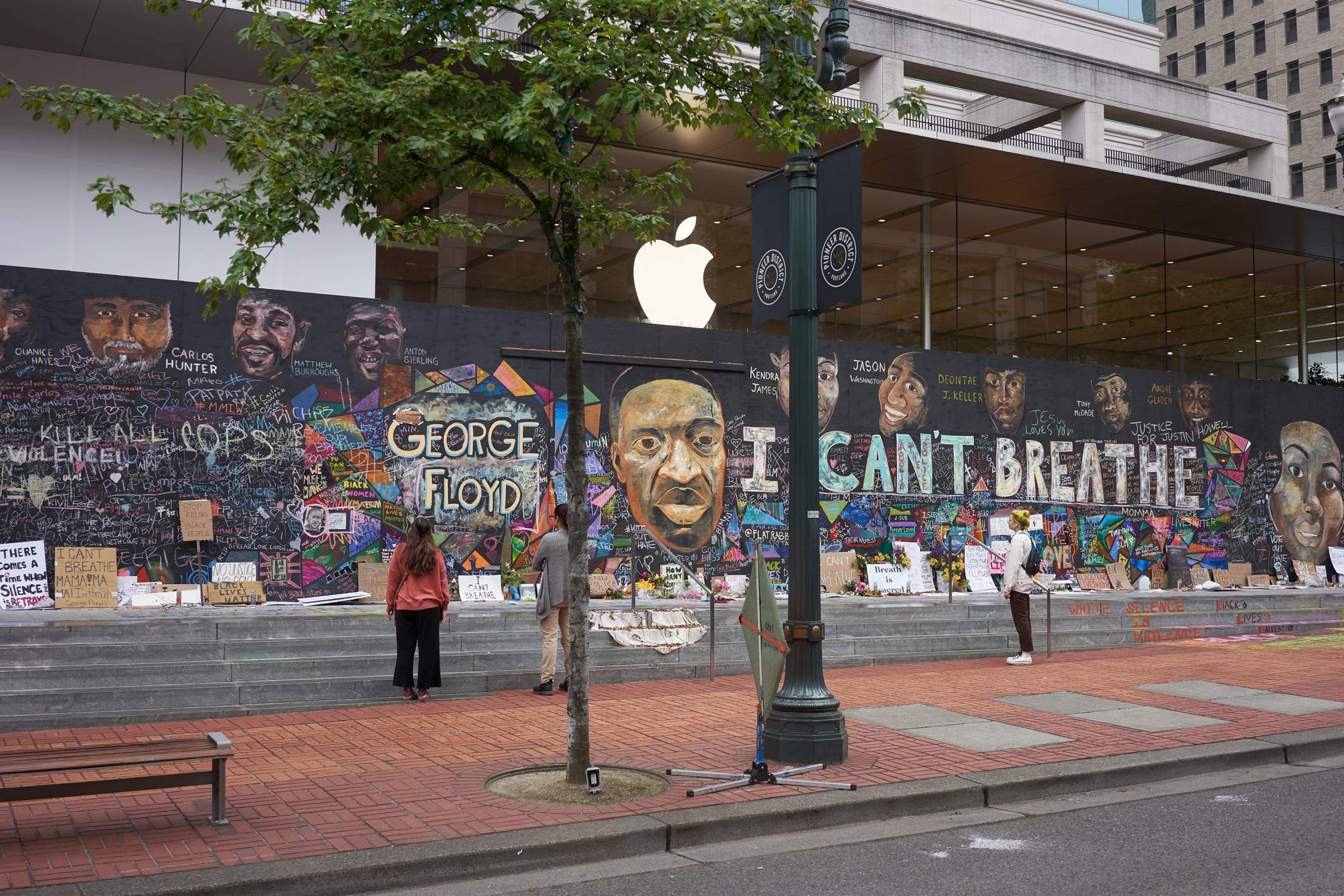
As racially motivated acts of violence continue to foster an elevated state of anxiety, a special report addendum to Edelman’s 2022 Trust Barometer, “Racial Justice and Business in America,” codifies how employee concerns around systemic racism and racial injustice rise with each tragedy — and how the response their employers take affects their decision to stay at the company.
Sixty-seven percent of American employees surveyed said that they were concerned about systemic racism and racial injustice following the racially motivated mass shooting at a grocery store in Buffalo, New York and the shooting at a Taiwanese church in Laguna Woods, California in May — a percentage only topped when employees were asked the same question after the shooting of Jacob Blake in Kenosha, Wisconsin in Aug. 2020 (69%) and the weeks after the murder of George Floyd (79%).
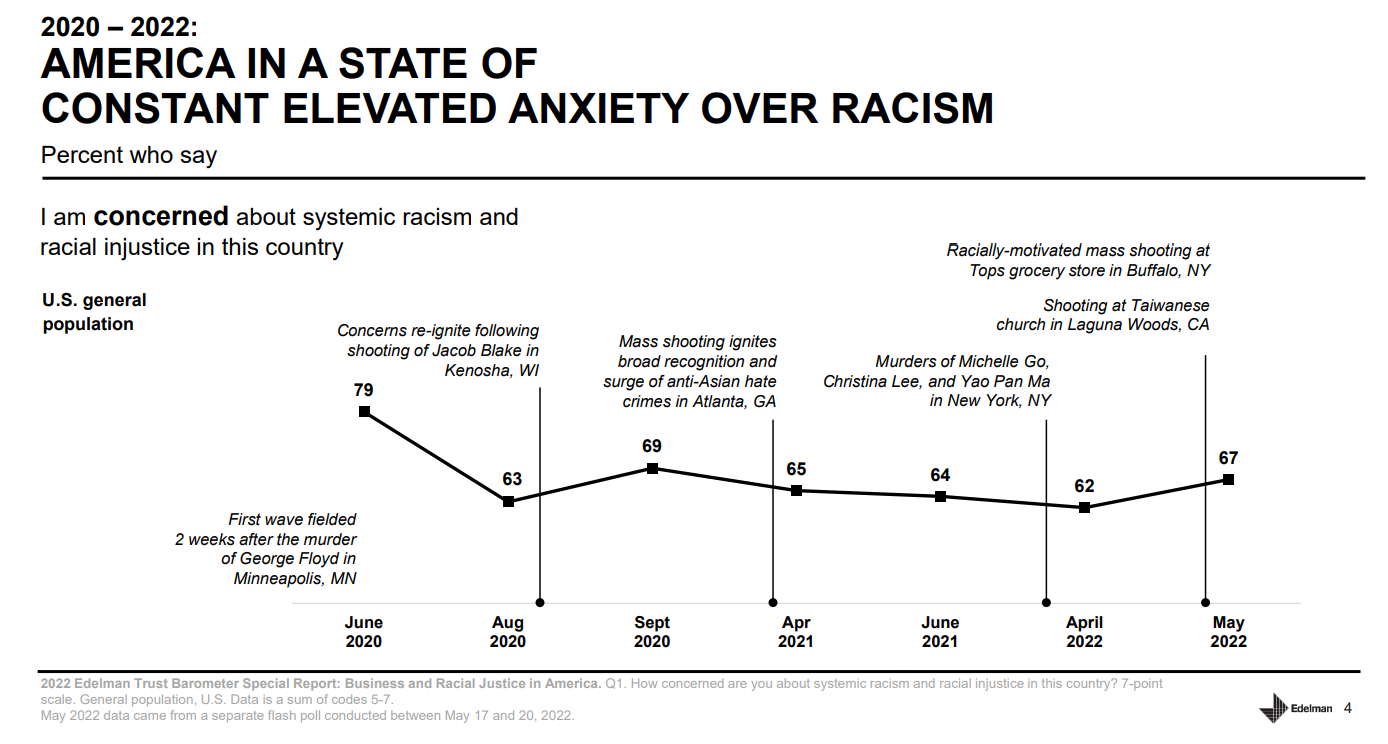
It’s worth noting that 73% of those surveyed said they believe systemic racism and racial injustice exist in this country, a 5-point rise from 2021.
With this awareness, employees are also less trustful that their employers will say the right thing when responding to systemic racism in this country. While 59% of Black employees surveyed trust their employers to say what is right, the number has plummeted 9 points since 2021. Similarly, the 65% of Asian employees surveyed who said they trust their employers to say the right thing is also down 9 points.
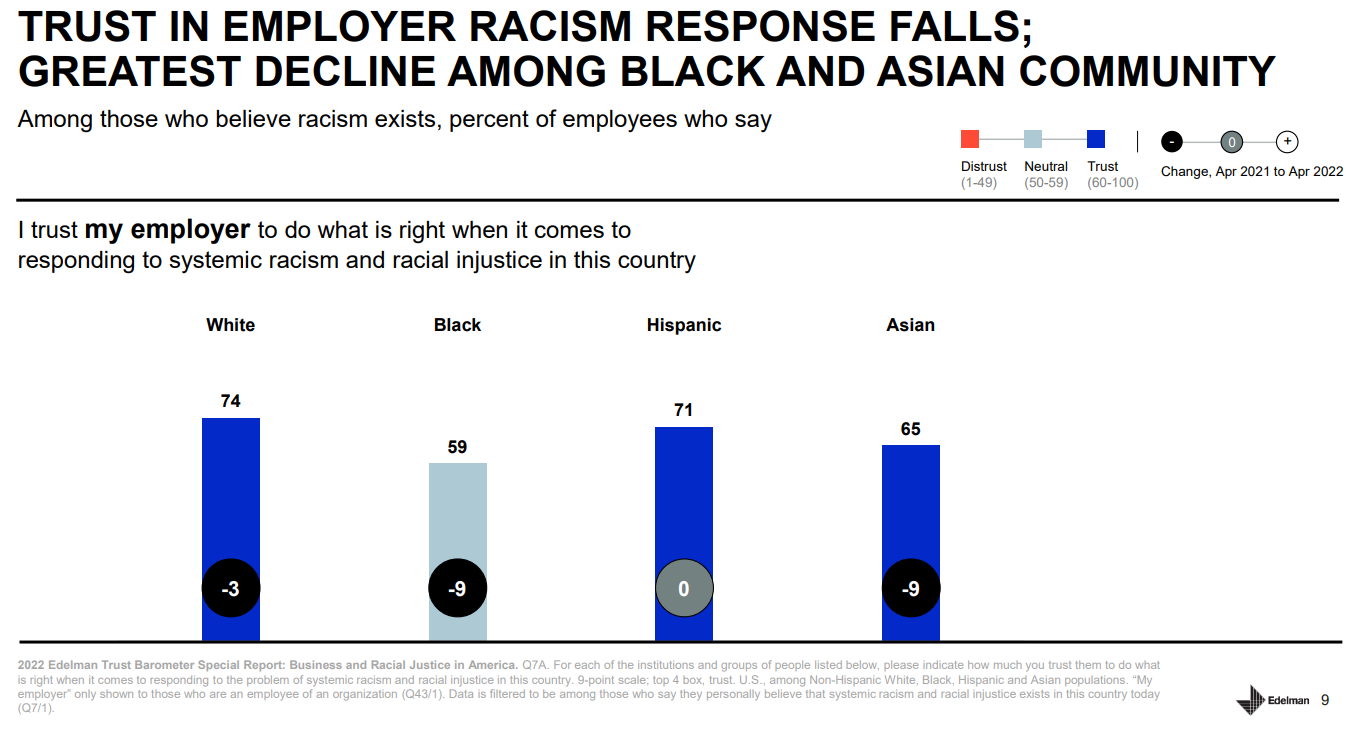
Those declining percentages can also impact your business and talent retention, as 60% of employees said they would not work for an organization that failed to address racism or have left a job due to a failure to speak out over the past year — a 2-point increase over 2021.
The study also breaks down how those failings can manifest internally, finding that under a quarter of employees surveyed reported their workplace was free of microaggressions or racist traditions. Another 24% admitted to not working at a racially representative organization, while just 16% felt their company had executive leadership that was racially representative and only 14% had a racially representative board of directors.
With these failings come new opportunities for inclusion, however, as 58% of employees surveyed said they consider an inclusive work culture with a strong and well-supported diversity program critically important to attracting and retaining them as an employee. That’s a notable 4-point increase over 2021.
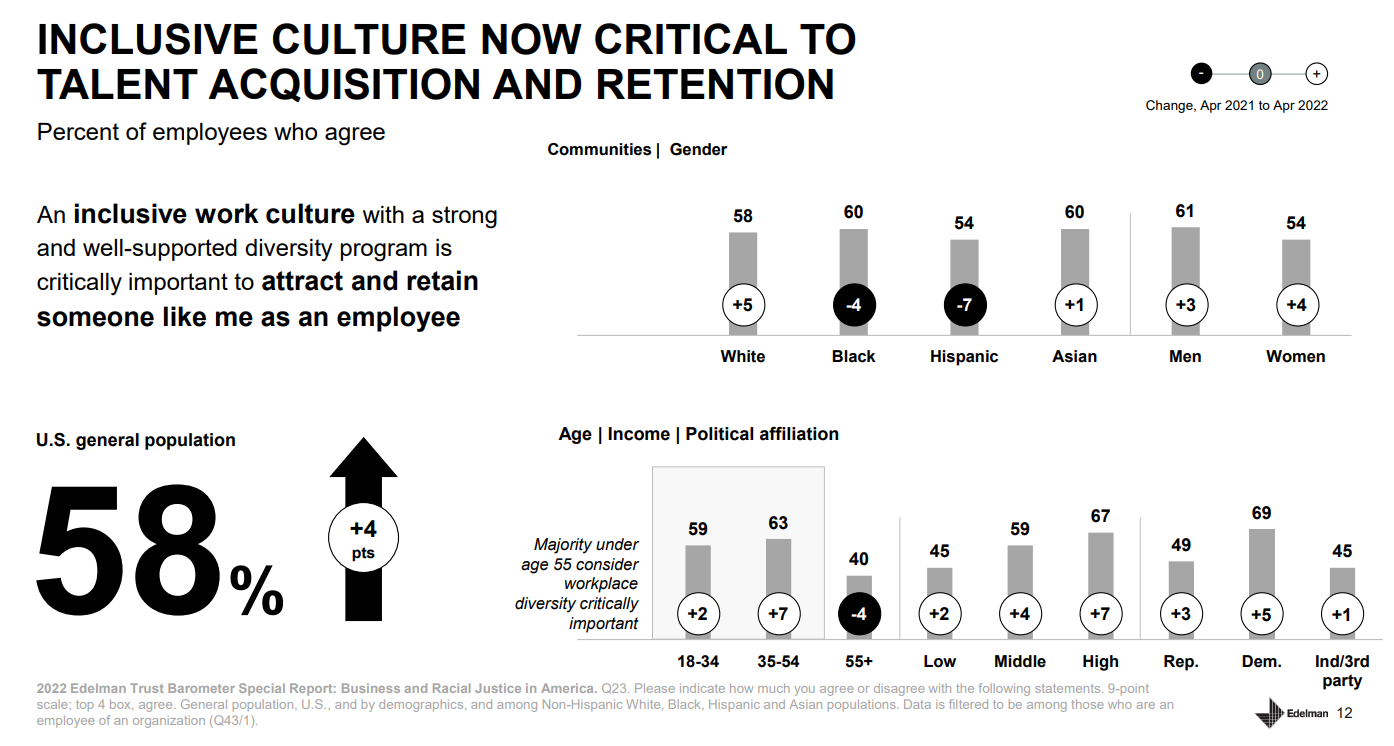
These numbers demonstrate why organizations hoping to attract and retain top talent must generate responses that resonate with their diverse workforce. Moreover, before a response can resonate authentically with employees in the first place, businesses must adopt an inclusive work culture from the inside out — ensuring that the values they espouse reflect the inclusion they are working toward with the workforce.



